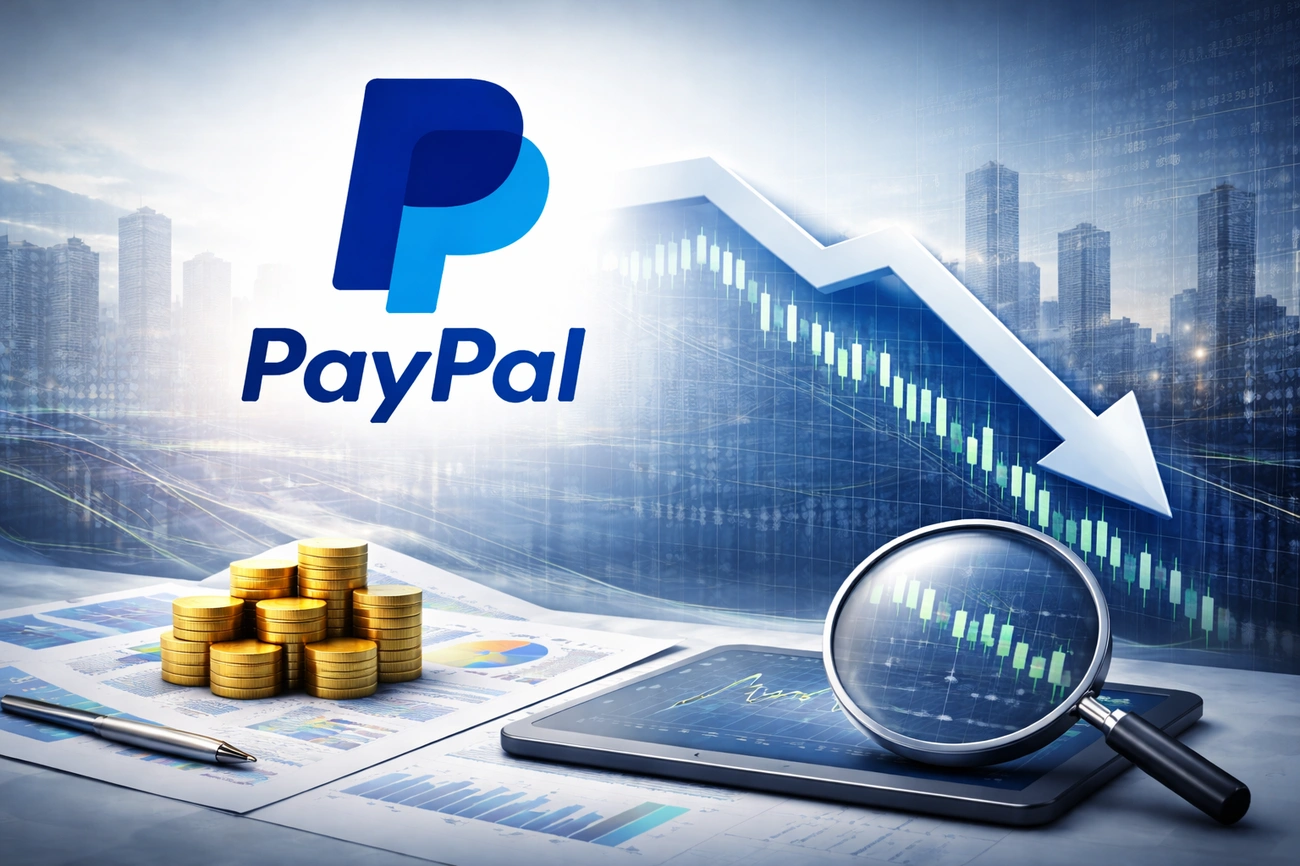Key Takeaways
- SpaceX is a private company, so its stock isn't publicly traded.
- Retail investors can invest indirectly through public companies like Alphabet and Bank of America or ETFs like XOVR.
- Investing in SpaceX offers significant potential rewards but also carries high risks due to the nature of the space industry.
- Tools like Intellectia.AI can assist in making informed investment decisions with AI-powered stock picks and market analysis.
- Staying updated on SpaceX news and market trends is crucial for successful investing.
Introduction
Have you ever dreamed of investing in SpaceX, the company that's revolutionizing space travel and aiming to make humans a multi-planetary species? You're not alone. Many investors are eager to get a piece of Elon Musk's ambitious venture. However, since SpaceX is a private company, its stock isn't available on public exchanges.
The good news? There are still ways to gain exposure to SpaceX's potential growth. In this article, we'll explore how you can invest in SpaceX indirectly, weigh the pros and cons, and provide a step-by-step guide to get you started. Plus, we'll show you how tools like Intellectia.AI can help you make informed investment decisions with AI-driven insights.

Source: intellectia.ai
What is SpaceX?
SpaceX, officially known as Space Exploration Technologies Corp., was founded in 2002 by Elon Musk with the mission to reduce space transportation costs and enable the colonization of Mars. Headquartered in Starbase, Texas, as of 2024, SpaceX has become a leader in the aerospace industry. It's renowned for its reusable rockets like Falcon 9, the Dragon spacecraft, and the Starlink satellite internet constellation.
The company has achieved historic milestones, including being the first private company to send astronauts to the International Space Station (ISS) in 2020 and becoming the world's dominant space launch provider by 2024. With an estimated revenue of over $10 billion in 2024, SpaceX continues to push the boundaries of space technology.
Can you buy SpaceX stock?
As of May 2025, SpaceX remains a private company, meaning its shares are not traded on public stock exchanges like the NYSE or Nasdaq. This restricts direct investment to accredited investors—those with a net worth exceeding $1 million (excluding their primary residence) or an annual income above $200,000 ($300,000 for couples).
Accredited investors may access SpaceX shares through pre-IPO marketplaces like Hiive or private funding rounds, but these opportunities are limited and often require significant capital. For retail investors, direct investment in SpaceX is not currently possible. However, there are indirect ways to gain exposure, which we'll explore next.
Speculation about a SpaceX IPO persists, with some suggesting a potential public offering in 2025 or later, though Elon Musk has indicated no immediate plans.

Source: investopedia
How to Invest in SpaceX?
While you can't buy SpaceX stock directly, there are several indirect methods to invest in the company's growth. Here’s how you can get involved:
Direct Investment Options
- Pre-IPO Marketplaces: Platforms like Hiive allow accredited investors to buy SpaceX shares from existing shareholders, such as employees or early investors. These shares are priced based on market demand, with recent valuations suggesting SpaceX is worth around $350 billion.
- Private Funding Rounds: High-net-worth individuals or institutional investors may participate in SpaceX’s funding rounds, but these are typically exclusive and require substantial capital.
- Accreditation Requirements: To invest directly, you must meet the SEC’s accredited investor criteria, which limits access for most retail investors.
Indirect Ways to Invest in SpaceX for Retail Investors
Retail investors can gain exposure to SpaceX through the following methods:
- Stocks of Public Companies with Stakes in SpaceX:
- Alphabet Inc. (GOOG, GOOGL): The parent company of Google invested $900 million in SpaceX in 2015 and additional funds in 2021, holding about a 6.99% stake, potentially worth $24.5 billion at SpaceX’s current valuation.
- Bank of America (BAC): Invested $250 million in 2018, with its stake now estimated at $2.9 billion. These companies’ SpaceX holdings are a small fraction of their overall business, so their stock prices are influenced by broader operations.
- ETFs with SpaceX Exposure:
- ERShares Private-Public Crossover ETF (XOVR): This ETF holds a significant 12% weighting in SpaceX, offering retail investors a rare opportunity to invest in private companies.
- Destiny Tech100: This ETF invests in private tech companies, including SpaceX, making it another option for retail investors.
- ARK Space Exploration & Innovation ETF (ARKX): While it may not hold SpaceX directly, this ETF focuses on space-related companies, providing exposure to the broader industry.
- Mutual Funds and Venture Funds:
- The ARK Venture Fund, managed by Cathie Wood, holds SpaceX as its largest position at 15.88%. Retail investors can access this fund through platforms like SoFi, though it’s not a traditional ETF.

Source: ARK Invest
To choose the best investment vehicles, leverage Intellectia.AI’s AI stock picker for data-driven insights and technical analysis tools to evaluate stock performance.
Should You Invest in SpaceX?
Investing in SpaceX, even indirectly, involves weighing significant opportunities against notable risks. Here’s a breakdown:
Pros
- Innovation Leader: SpaceX is a pioneer in reusable rockets, satellite internet via Starlink, and Mars colonization plans, positioning it for long-term growth.
- Government Contracts: Partnerships with NASA and the U.S. Space Force provide stable revenue, with contracts worth billions.
- Growth Potential: With a valuation of $350 billion and projects like Starlink, SpaceX has substantial upside potential.
- Market Dominance: As the world’s leading space launch provider, SpaceX holds a competitive edge.
Cons
- High Risk: Space exploration is costly and technologically challenging, with potential for setbacks.
- Limited Liquidity: Private company shares are less liquid, and indirect investments may not fully reflect SpaceX’s performance.
- Valuation Concerns: High valuations may not always align with fundamentals, posing risks for investors.
- Dependence on Leadership: SpaceX’s success is closely tied to Elon Musk’s vision, which introduces key-person risk.
Before investing, assess your risk tolerance and goals. Use Intellectia.AI’s trading strategies to develop a plan tailored to your portfolio.
| Investment Option | Type | Accessibility | SpaceX Exposure | Risk Level |
|---|---|---|---|---|
| Alphabet (GOOG, GOOGL) | Stock | Retail Investors | ~6.99% stake | Moderate |
| Bank of America (BAC) | Stock | Retail Investors | Small stake | Moderate |
| XOVR ETF | ETF | Retail Investors | ~12% weighting | High |
| Destiny Tech100 | ETF | Retail Investors | Includes SpaceX | High |
| ARKX ETF | ETF | Retail Investors | Space sector, no direct SpaceX | Moderate |
Step-by-Step Guide: How to Start Investing in SpaceX (Indirectly)
Here’s a practical guide to get started:
- Open a Brokerage Account: Choose a reputable brokerage platform like Public or SoFi that offers access to stocks and ETFs. Ensure it supports the investment vehicles you’re interested in.
- Research and Select Investment Vehicles:
- Stocks: Consider Alphabet (GOOG, GOOGL) or Bank of America (BAC) for indirect SpaceX exposure.
- ETFs: Explore XOVR or Destiny Tech100 for direct SpaceX holdings, or ARKX for broader space sector exposure.
- Use Intellectia.AI’s stock monitor to track performance and AI screener to identify top picks.
- Monitor SpaceX News and Market Trends: Stay informed about SpaceX’s developments, such as new contracts or Starlink updates. Intellectia.AI’s news section and hedge fund tracker provide real-time updates and insights to guide your decisions.
Conclusion
Investing in SpaceX stock may seem out of reach since it’s a private company, but you can still participate in its growth through indirect methods. By investing in public companies like Alphabet or ETFs like XOVR, you can gain exposure to SpaceX’s innovative ventures.
However, the space industry is high-risk, so it’s crucial to weigh the pros and cons and stay informed. For smarter investment decisions, sign up for Intellectia.AI to access AI-powered stock picks, trading signals, and market analysis. Start exploring your options today and take a step toward investing in the future of space exploration.






